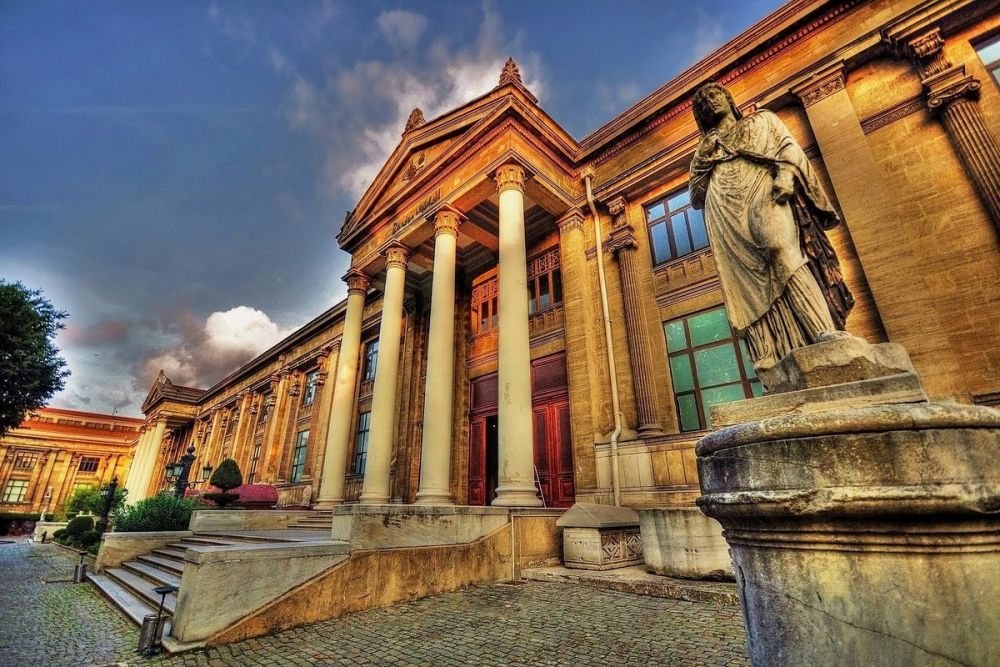

The Istanbul Archaeology Museums are a group of three archaeology museums located in the Eminönü district of Istanbul, Turkey, near Gülhane Park and Topkapi Palace. These museums—namely the Archaeology Museum, the Museum of the Ancient Orient, and the Tiled Kiosk Museum—house a vast collection of artifacts from various civilizations that once existed within the borders of the Ottoman Empire and beyond.
The origins of tourism in Istanbul can be traced back to the times of the grand tours in the 16th and 17th centuries, when istanbul was a crucial stop for those exploring the Orient. However, the history of the Istanbul Archaeology Museums began towards the end of the 19th century, when it was founded by Osman Hamdi Bey in 1891. Originally serving as an annex for the artifacts on display at the Topkapi Palace, the museum gained its own significance and became one of the most prominent in Turkey, drawing in locals and international travelers alike with its collections that span a history of over one million years.
Tourists visiting the Istanbul Archaeology Museums can marvel at the vast troves of Islamic art, the Alexander Sarcophagus, and countless other artifacts from Greco-Roman to Byzantine era. Open to the public most days of the week, the museum complex has become a staple for history buffs and casual travelers to Istanbul.
In recent years, Istanbul has seen an uptick in cultural tourism, with travelers seeking experiences that allow them to delve into the rich history and archaeology of the city. The Istanbul Archaeology Museums play a significant role in this trend, as they offer a window into the diverse cultures that have thrived in the region. Another emerging trend is digital tourism. Many visitors now plan their visits online, book tours through apps, and share their experiences on social media, making Istanbul's antiquities accessible to a broader, global audience.
Keeping up with the digitalisation trend, the Istanbul Archaeology Museums have also improved their digital presence, offering virtual tours and online collections to interested audiences worldwide. The integration of technology enhances the visitor experience by providing access to audio guides, interactive maps, and even augmented reality visuals that bring ancient artifacts to life in a contemporary format.
As a beacon of history and culture, the Istanbul Archaeology Museums remain at the forefront of the city's tourist attractions. The museums continue to adapt to modern trends while preserving the integrity of the priceless artifacts within their walls.